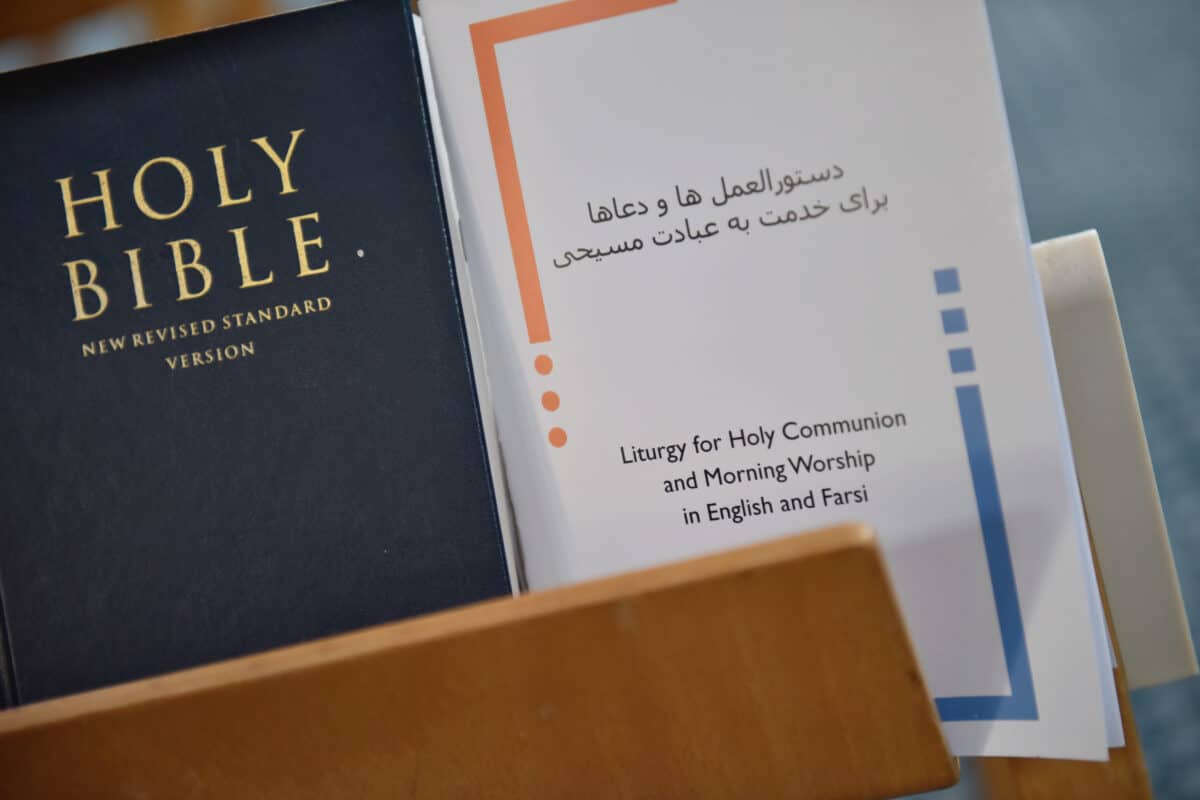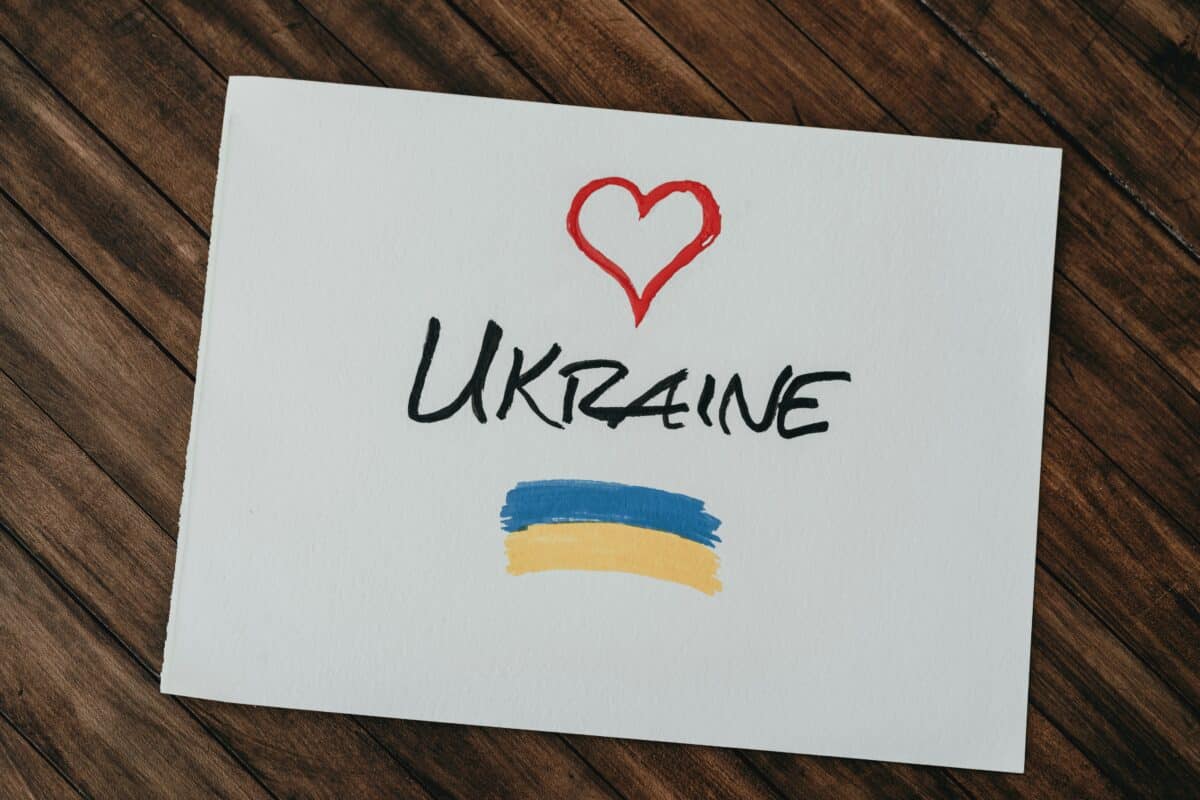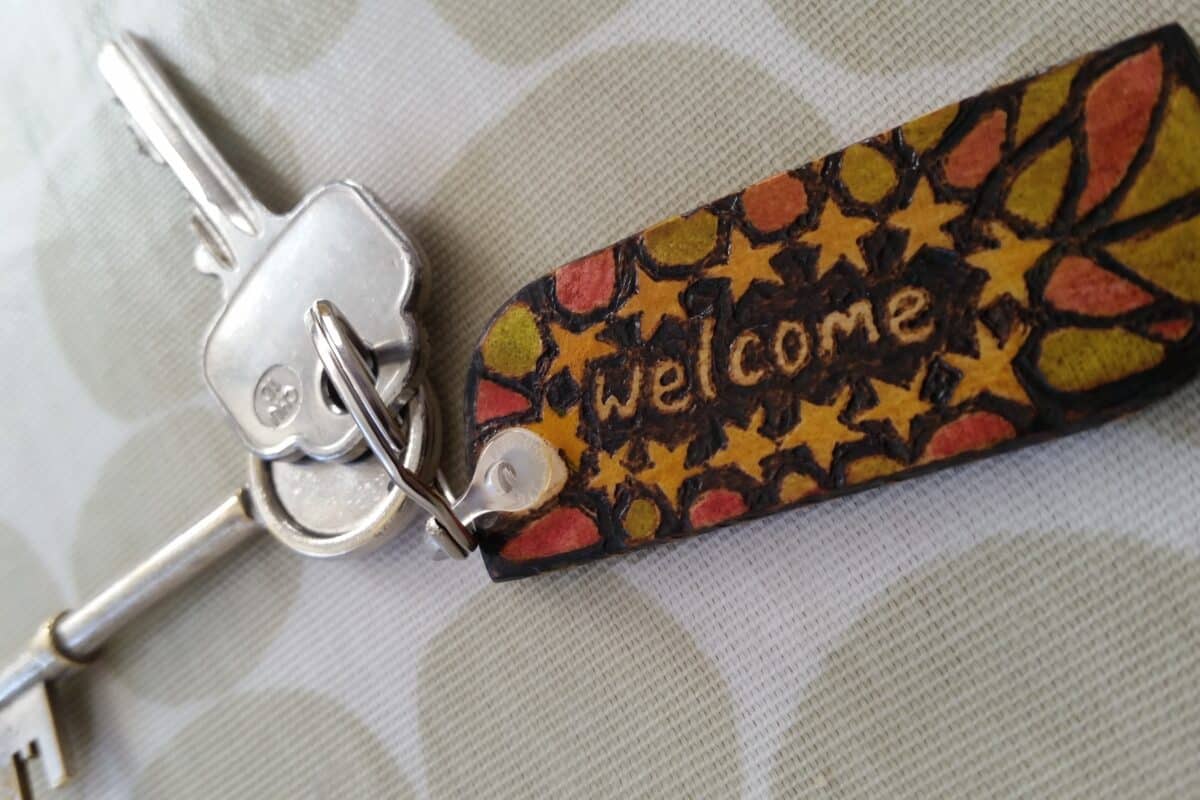Supporting Farsi speakers
With many our London church communities welcoming Farsi speakers, The Revd Jonathan Samadi, Leader of The Persian Anglican Community of London, helps us to understand more about the support and resources available.

The Persian Anglican Community of London has a vision to equip and support those Anglican churches and church leaders who have a number of Persian parishioners, and who want to offer them effective service and ministry.
Some of the ways that the Persian Anglican Community of London does this is:
- Advising leaders of parishes across the Diocese in order to serve these Persians.
- Providing discipleship courses, so that language is not a barrier, and they can learn about Jesus and Christianity in their own native language.
- Discipling and training emerging Persian leaders, facilitators and servants, in order to grow the Persian ministry back in their local contexts.
The Persian Anglican Community of London also hopes to create a safe, friendly place for Farsi speakers to meet each other, giving them the opportunity to come together at least once a month and to worship God and have fellowship with each other.
How can a church community link in with the support and resources available?
Revd Jonathan Samadi is the main contact for The Persian Anglican Community of London. He can be contacted via email.
Examples of resources available to support Farsi discipleship are:
- A discipleship course;
- The Farsi translation of the Alpha course;
- The Farsi translation of Holy Communion (approved by the House of Bishops)- available as a pocket sizes booklet in English and Farsi;
- Baptism and confirmation liturgy translated into Farsi.
What is the best way of churches getting hold of Bibles in Farsi?
Church leaders can contact Revd Jonathan Samadi who can direct them to a website where they can order Bibles or New Testaments. There are also online resources available, such as the You Version of the Bible app, which has many translations including Farsi.
In what different ways are Diocese of London churches already journeying with Farsi speakers?
Many Diocese of London parishes have been open, welcoming, and passionate about doing whatever they can to support Farsi speakers in their communities.
Some have very simply offered opportunity of their using the church kitchen once a week for Farsi speakers to cook for themselves a Persian meal, and enjoy fellowship around the table together. One parish has started a discipleship course after lunch. They have a meal together, and then spend a couple of hours of learning about a foundational subjects in the Christian faith, with a time of questions and answers, and praying together.
Are there any sensitivities, or things that church leaders and those within church communities should be aware of when journeying with Farsi speakers?
Language barriers can be difficult, and there are cultural differences. It’s important to make sure we are warm and welcoming. Also to try to give them time to settle in the community and help them make friends, linking them in with those who have strong pastoral skills in our communities.
It’s also important to know that these people can be very unsettled, especially when they first arrive. They have gone through trauma- leaving their family, their home, their country behind and have gone through difficult journeys, and some of them have gone through major traumas. We need to be conscious of that, and the effects of those traumas they have gone through, and really allow extra grace.
If people want to read or learn more about Iranian culture or history, are there things that you would point them to?
- Iran in World History, by Richard Foltz
- The Mantle of the Prophet: Religion and Politics in Iran, by Roy Mottahedeh
- A History of Iran: Empire of the Mind, by Michael Axworthy
- Shahnameh: The Persian Book of Kings, by Abolqasem Ferdowsi, Dick Davis (translator)
- Christianity in Persia and the Status of Non-Muslims in Modern Iran, by Van Christian A. Gorder
- Iran and Christianity: Historical Identity and Present Relevance, by Mark Bradley
Looking for more information?
To access the resources mentioned above, or for any additional queries you can contact Revd Jonathan Samadi, Leader of The Persian Anglican Community of London.
Ukraine response
We continue to follow the tragic events in Ukraine and to pray for peace. As a result of the ongoing war , more than 150,000 people from Ukraine have arrived in the UK.
There are a number of ways that you can help, and there is more detail about these in the section below.

We can pray
We pray for our brothers and sisters in Ukraine, Russia and Eastern Europe who are living through a war that they don’t want, fleeing violence, and working to support victims.
A Prayer for Ukraine
God of peace and justice,
we pray for the people of Ukraine today.
We pray for peace and the laying down of weapons.
We pray for all those who fear for tomorrow,
that your Spirit of comfort would draw near to them.
We pray for those with power over war or peace,
for wisdom, discernment and compassion
to guide their decisions.
Above all, we pray for all your precious children, at risk and in fear,
that you would hold and protect them.
We pray in the name of Jesus, the Prince of Peace.
Amen.
Archbishop Justin Welby
Archbishop Stephen Cottrell
We can give financially
A number of organisations, and the governments of the countries bordering Ukraine who are receiving the vast majority of refugees, have confirmed that financial support is much more valuable than collections of physical goods, which are often subject to issues at customs and cause bottlenecks at distribution.
The Diocese of Europe and United Society Partners in the Gospel (USPG) have launched a joint Ukraine Emergency Appeal to support partners on the ground in Ukraine and surrounding countries.
Another place to donate is the Disaster Emergency Committee (DEC) Ukraine Humanitarian Appeal.
We can consider hosting under the ‘Homes for Ukraine’ scheme
Following the Russian invasion of Ukraine in February 2022 millions of people have fled their homes. Thousands of Ukrainians are still in dire need of hosts to help them find safety.
Who can be a host?
If you live in the UK (and have at least 6 months’ leave to remain) and have a spare room or separate accommodation that you are able to offer for a minimum of 6 months, you can sign up to host a refugee individual or a family under the ‘Homes for Ukraine’ scheme.
Further information is available on the Government website FAQs.
What do I need to think about as I consider hosting?
The opportunity to be a host and open up your home to someone in need can be a unique, humbling and deeply enriching experience. However, before you commit to hosting, it is important to think through carefully what this will mean for you (and your family).
We have produced guidance for clergy in the Diocese of London Homes for Ukraine Diocese of London clergy Tips and Considerations. To receive a copy please contact the Compassionate Communities Team. Whilst not an exhaustive list, we hope that it provides some useful considerations as you think through hosting.
You may also find it useful to watch back the recording of an information session run in 2022 by The Compassionate Communities Team on what to consider when hosting.
I’m keen to proceed with hosting- what do I do now?
- If you know a Ukrainian individual or family already who you would like to host, then you can apply directly to the government for their visa(s). Either you as the sponsor, or the guest can complete a single application for a visa online, using both parties’ details. If you know who you want to sponsor, you can make an application.
- At the same time, if you are clergy in the Diocese of London you should complete this Form, to ensure that the Compassionate Communities, safeguarding, and property teams are aware of your intention to host, and can support you with a hosting agreement between you and your guest(s).
- After the application is submitted, the Councils will complete checks on both the sponsor, all other adults in the sponsor’s household, and the guest. Once both the sponsor and guest have passed the checks, the Home Office will issue the guest with a permit to travel.
- The guest can then travel to the UK and coordinate their arrival with the sponsor. Guests arriving in the country will be eligible for a single onward journey, via national rail, bus, light rail, and coach. This will be free of charge to anywhere in England, Scotland, and Wales.
What if I don’t know an individual or family I would like to host?
There are now a variety of routes available to match hosts with potential guests.
The Diocese of London are working with Citizens UK to resettle Ukrainian refugees in our diocese. Every offer of support is greatly appreciated.
If you are interested in exploring hosting then you can email The Compassionate Communities Team. We’ll send you a form to collect some information on you, your household and the accommodation you’d like to offer, and we can then find you a match.
What other resources on hosting are available?
RESET also have a Homes for Ukraine Ukraine Toolkit, which includes links to support around travel to the UK, employment, immigration advice, and health and wellbeing.
NACCOM have a useful Hosting Good Practise Guide.
Safeguarding Considerations for Homes for Ukraine Scheme
You should be alert to any possible safeguarding and conduct complications which may arise from having refugee guests in your home.
Guests are most likely to be single women, mothers with children, or elderly and vulnerable. If you have children or vulnerable adults already in your household or visiting, you will need to consider the impact of bringing additional children or vulnerable adults into this – for both sides.
Do seek wisdom and guidance from clergy colleagues, or from the Duty Diocesan Safeguarding Advisor if you feel that you need it either before committing to take refugees in as guests or at any time while you are hosting. (Contact the Duty Diocesan Safeguarding Advisor on 0207 932 1224 during office hours Monday-Friday 9-5pm, between the hours of 5pm and midnight, please contact them on 0303 003 1111, option 2).
Government guidance is that Councils must undertake basic DBS checks on all adults in the sponsor household. In households where there are incoming arrivals who are children and/or vulnerable adults, an enhanced DBS check with barred lists check will be required for all adults in the sponsor household.
The ‘Homes for Ukraine’ scheme is not open to unaccompanied minors, however should an unaccompanied minor or vulnerable adult arrive please contact your local authority Children or Adult Social Care Services.
Specific Safeguarding guidance for clergy hosting in the Diocese of London
We ask that you ensure that you let us know about your intention to host using this form, so that we can work with our diocesan safeguarding and property teams to support you to ensure that:-
- you as the host have any up to date DBS check (within the last 3 years), and for any other adult family members you live with;
- you have completed the Leadership Training, (previously known as C2/C3). For non clergy within the diocese, we suggest, if not already completed, to do the Basic Awareness (C0) and Foundation (C1) safeguarding training courses. These can all be accessed through the CofE Training Portal. More information from the Safeguarding team about training is here;
- a clergy hosting agreement is signed, so that our property team can let our building insurers know.
Looking for more information?
For any additional queries you can contact The Compassionate Communities Team.
Hong Kong Welcome
In response to the changing political situation in Hong Kong, the British Government created opened a new visa route in January 2021 for those who registered before 1997 as British Nationals Overseas in Hong Kong, but now want to come and live in the UK. Below you can find more information about how you can be part of the welcome.

Those arriving from Hing Kong might be highly skilled and some will speak good English, but they will still need help settling into the UK. Helping people settle in doesn’t need special skills: it could be as simple as showing them how to use the local transport system, or where to buy school uniform. You can read the welcome story of one of our North London churches here.
There is lots of information available online at UKHK.org UKHK is a network of churches and organisations that work together to support each other in welcoming Hong Kongers.
As a church you can sign up to be ‘Hong Kong ready’ at ukhk.org/church.
Afghan Welcome
Many of our London church communities have welcomed those arriving from Afghanistan, often supporting those who were accommodated in local hotels. You can find below information and resources to support churches in their Afghan Welcome below.

The Revd Clare Dowding and the Revd Donna McDowell of St Paul’s, Marylebone talk to us in this video story about welcoming families from Afghanistan.
The charity Welcome Churches provides a number of resources for churches welcoming those from Afghanistan, including:
- A Welcome Course– available in Dari, Pashto and Farsi;
- Wellbeing: Looking After Myself- in Dari.
One of the key challenges now for those who have arrived from Afghanistan is finding accommodation, as they move out of hotels or arrive in a local community. If you would like to explore hosting a refugee, or becoming a landlord to offer housing to a refugee (family) at an affordable rate, then do get in contact with the Compassionate Communities Team.
The Red Cross provides helpful information on the various Afghanistan resettlement and relocation schemes, as well as information for those from Afghanistan settling into life in the UK.